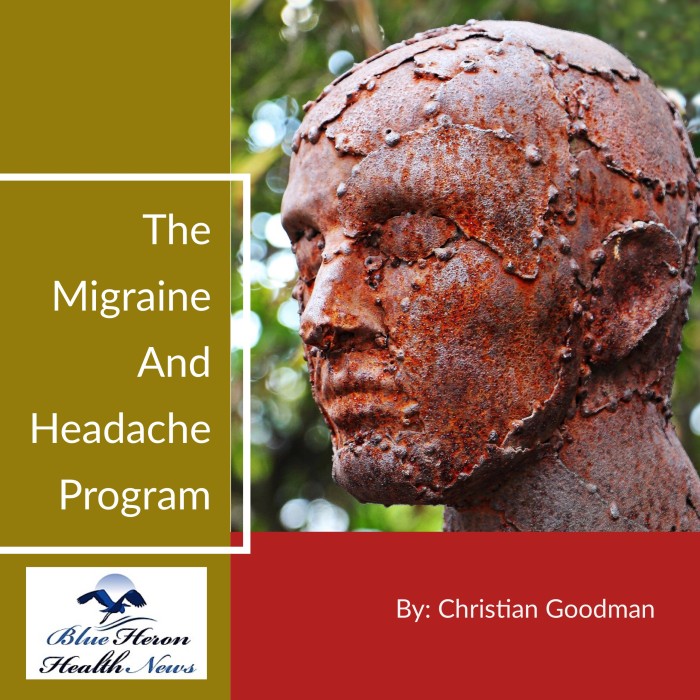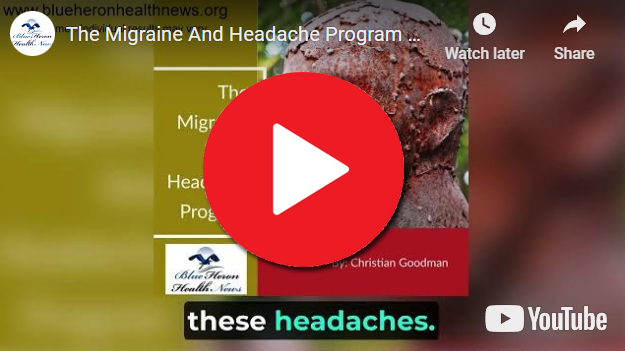
The Migraine And Headache Program By Christian Goodman This program has been designed to relieve the pain in your head due to any reason including migraines efficiently and effectively. The problem of migraine and headaches is really horrible as it compels you to sit in a quiet and dark room to get quick relief. In this program more options to relieve this pain have been discussed to help people like you.
What are cluster headaches, and how do they differ from migraines?
Cluster headaches and migraines are two distinct types of headache disorders that differ significantly in their symptoms, triggers, duration, and treatment approaches. Here’s a detailed comparison:
Cluster Headaches
Definition: Cluster headaches are a type of primary headache disorder characterized by recurrent, severe attacks of pain that typically occur in cyclical patterns or “clusters.” These headaches are considered one of the most painful types of headaches, often referred to as “suicide headaches” due to their intensity.
Symptoms:
- Pain Location: Typically unilateral (one-sided), often centered around the eye, temple, or forehead. The pain may radiate to other areas such as the neck or shoulders.
- Pain Nature: The pain is sharp, stabbing, or burning and reaches peak intensity within minutes.
- Duration: Each headache attack lasts between 15 minutes to 3 hours. Multiple attacks can occur in a single day, usually at the same time each day.
- Autonomic Symptoms: Commonly accompanied by symptoms such as red or watery eyes, nasal congestion, runny nose, drooping eyelid, and facial sweating, all on the same side as the headache.
- Restlessness: Unlike migraine sufferers who prefer to lie down, those with cluster headaches often feel agitated and restless, and may pace or move around during an attack.
Frequency: Cluster headaches occur in periods (or clusters) lasting weeks to months, followed by remission periods where no headaches occur, which can last months to years.
Triggers:
- Alcohol is a common trigger during a cluster period.
- Strong smells, such as perfume or gasoline, can also trigger attacks.
- Changes in sleep patterns may influence the onset of cluster headaches.
Treatment:
- Acute Treatment: High-flow oxygen therapy is highly effective in aborting an acute cluster headache. Triptans (like sumatriptan) can also be effective, especially in injectable or nasal spray form.
- Preventive Treatment: Medications like verapamil, corticosteroids, or lithium are used to reduce the frequency and severity of attacks during a cluster period.
Migraines
Definition: Migraines are a common neurological disorder that involves recurrent episodes of moderate to severe headaches, often accompanied by other symptoms such as nausea, vomiting, and sensitivity to light and sound.
Symptoms:
- Pain Location: Typically unilateral, but can affect both sides of the head. Pain is usually centered around the temples, forehead, or behind the eyes.
- Pain Nature: The pain is usually throbbing or pulsing.
- Duration: Migraines can last from 4 hours to 72 hours if untreated.
- Aura: About 25-30% of people with migraines experience an aura, which includes visual disturbances like flashes of light, zigzag patterns, or blind spots before the headache begins.
- Other Symptoms: Commonly associated with nausea, vomiting, and increased sensitivity to light (photophobia) and sound (phonophobia).
Frequency: Migraines can occur episodically (less than 15 days per month) or chronically (15 or more days per month).
Triggers:
- Migraines are often triggered by hormonal changes (such as those related to menstruation), certain foods and drinks (e.g., caffeine, alcohol, chocolate), stress, lack of sleep, bright lights, strong smells, and weather changes.
Treatment:
- Acute Treatment: Triptans, NSAIDs, and anti-nausea medications are commonly used. In some cases, ergotamines may be used, though they are less commonly prescribed today.
- Preventive Treatment: For frequent migraines, preventive medications such as beta-blockers, anticonvulsants, antidepressants, and CGRP inhibitors may be used.
Key Differences Between Cluster Headaches and Migraines
- Intensity and Nature of Pain: Cluster headaches are generally more intense, described as sharp, stabbing pain, while migraines are often described as throbbing or pulsing.
- Duration and Frequency: Cluster headaches are shorter in duration but can occur multiple times a day, whereas migraines last longer but occur less frequently.
- Associated Symptoms: Cluster headaches often involve autonomic symptoms such as red eyes and nasal congestion, while migraines are more likely to involve nausea, vomiting, and sensitivity to light and sound.
- Behavior During Attacks: People with cluster headaches are typically restless during an attack, while those with migraines often seek a dark, quiet place to lie down.
- Triggers: While both conditions can be triggered by environmental factors, cluster headaches are more likely to be triggered by alcohol during a cluster period, whereas migraines have a broader range of potential triggers, including hormonal changes, certain foods, and stress.
Conclusion
While both cluster headaches and migraines are severe headache disorders, they differ in many aspects, including pain characteristics, duration, frequency, associated symptoms, and triggers. Proper diagnosis and treatment are essential, as the management strategies for each type of headache can differ significantly. If you suffer from severe headaches, it’s important to consult with a healthcare professional to determine the appropriate diagnosis and treatment plan.

The Migraine And Headache Program By Christian Goodman This program has been designed to relieve the pain in your head due to any reason including migraines efficiently and effectively. The problem of migraine and headaches is really horrible as it compels you to sit in a quiet and dark room to get quick relief. In this program more options to relieve this pain have been discussed to help people like you.